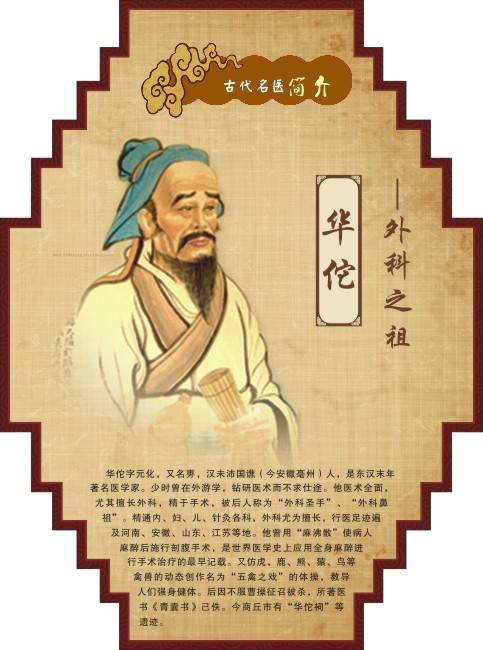Hua Tuo
4 min read
Hua Tuo is a famous physician of the Han Dynasty who is so widely respected thathis name and image adorn numerous products(e.g.,as a brand name for acupuncture needles and for medicated plasters)and a set of frequently used acupuncture points.
He is known for the early qi gong exercise set known as the frolics of the five animals,in which one imitates the actions of tigers,deer,bears,apes,and birds;these practices were later incorporated into various health promoting martial arts practices,such as taijiquan.His name is always mentioned in relation to surgery,as he was considered the first surgeon of China,and one of the last famous surgeons of ancient China.












